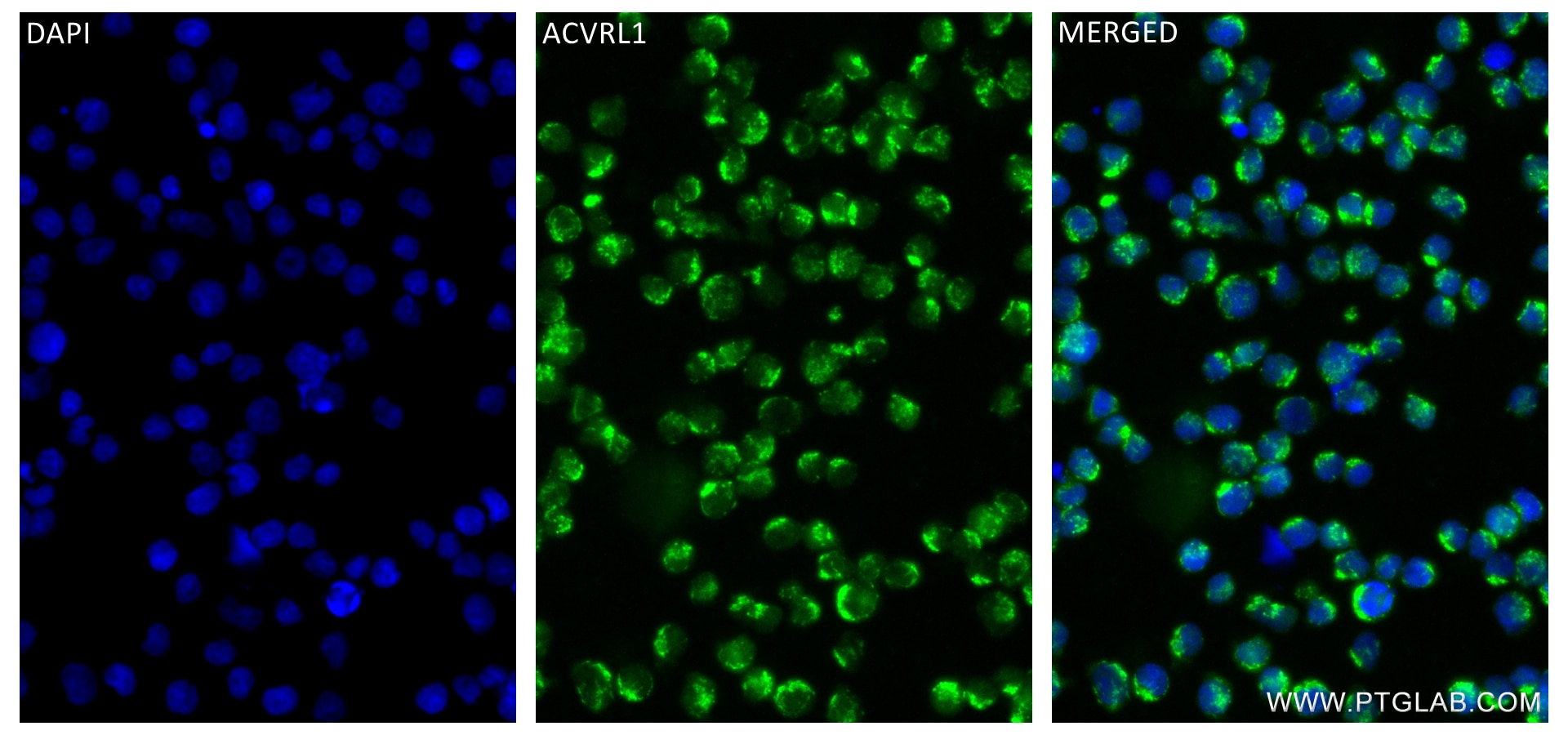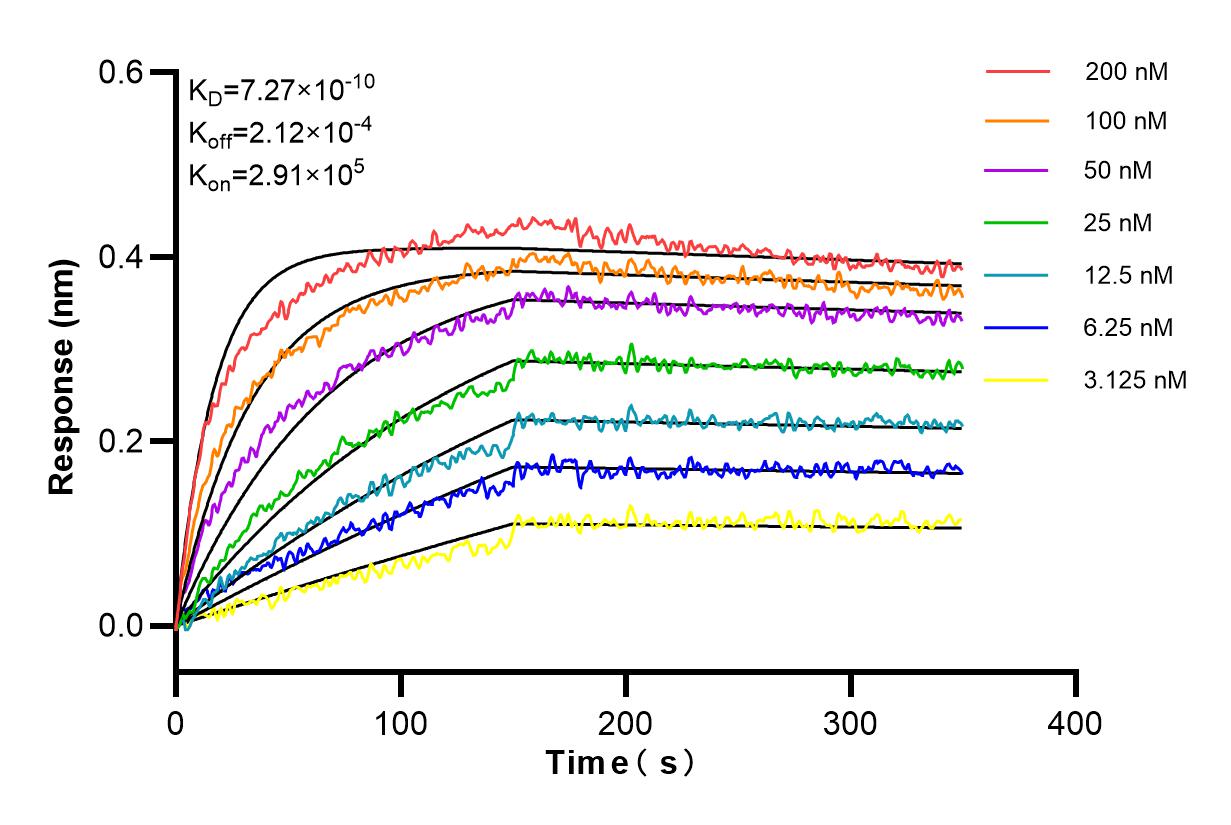Validation Data Gallery
Tested Applications
| Positive IF/ICC detected in | Jurkat cells |
Recommended dilution
| Application | Dilution |
|---|---|
| Immunofluorescence (IF)/ICC | IF/ICC : 1:125-1:500 |
| It is recommended that this reagent should be titrated in each testing system to obtain optimal results. | |
| Sample-dependent, Check data in validation data gallery. | |
Product Information
84421-1-RR targets ACVRL1 in IF/ICC, ELISA applications and shows reactivity with human samples.
| Tested Reactivity | human |
| Host / Isotype | Rabbit / IgG |
| Class | Recombinant |
| Type | Antibody |
| Immunogen | FusionProtein 相同性解析による交差性が予測される生物種 |
| Full Name | activin A receptor type II-like 1 |
| Calculated molecular weight | 56 kDa |
| GenBank accession number | BC042637 |
| Gene Symbol | ACVRL1 |
| Gene ID (NCBI) | 94 |
| RRID | AB_3671948 |
| Conjugate | Unconjugated |
| Form | Liquid |
| Purification Method | Protein A purification |
| UNIPROT ID | P37023 |
| Storage Buffer | PBS with 0.02% sodium azide and 50% glycerol pH 7.3. |
| Storage Conditions | Store at -20°C. Stable for one year after shipment. Aliquoting is unnecessary for -20oC storage. |
Background Information
ACVRL1 (also known as ALK1) is a type I cell-surface receptor for the TGF-beta superfamily of ligands. It shares with other type I receptors a high degree of similarity in serine-threonine kinase subdomains, a glycine- and serine-rich region (called the GS domain) preceding the kinase domain, and a short C-terminal tail. ACVRL1 is highly expressed in endothelial cells and has a critical role in the control of blood vessel development and repair (PMID: 8640225). Mutations in the ACVRL1 gene are associated with hemorrhagic telangiectasia type 2.
Protocols
| Product Specific Protocols | |
|---|---|
| IF protocol for ACVRL1 antibody 84421-1-RR | Download protocol |
| Standard Protocols | |
|---|---|
| Click here to view our Standard Protocols |

